Aquarium Book Club, October 2025
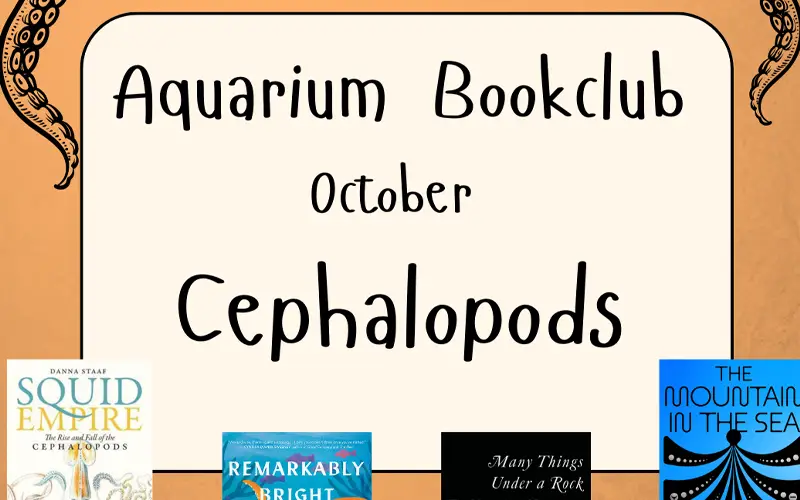
Cephalopods
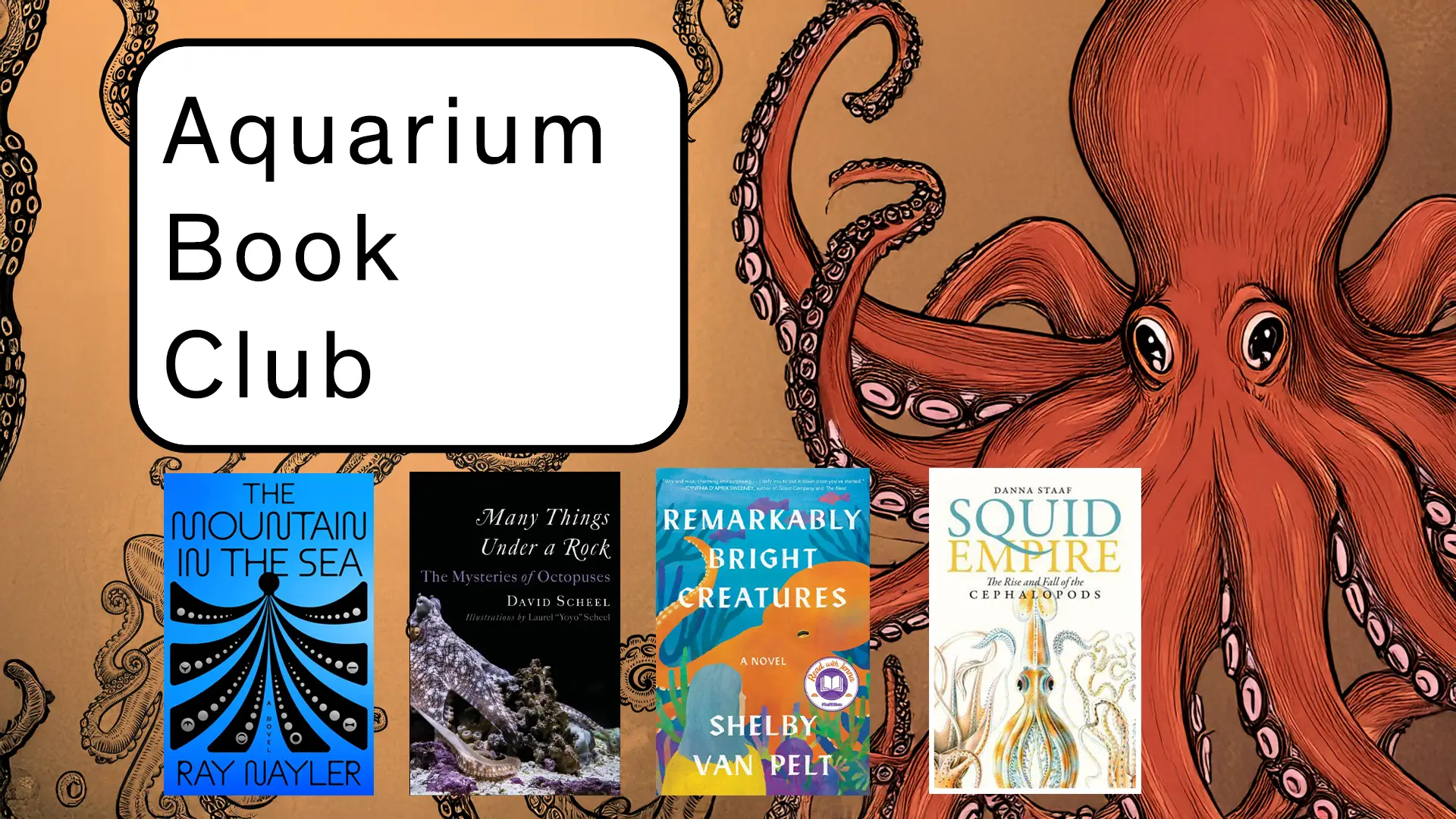
This month’s book topic is the fascinating world of cephalopods, which include octopuses, squid, nautiluses, and cuttlefish. Their intelligence, mysterious life cycles, unique anatomy, and remarkable abilities have made them the subject of many books.
The books I have read this month are Many Things under a Rock by David Scheel, Squid Empire by Danna Staaf, Remarkably Bright Creatures by Shelby van Pelt and Mountain in the Sea by Ray Naylor.
In Many Things under a Rock, Professor David Scheel tries to find some of the answers to the questions that make the octopus so fascinating to us, like: How do octopus bodies work? How do they hunt so effectively? How do they interact with other individuals?
Even though there is still so much unknown, Scheel tries to explain what we currently understand about these fascinating creatures.
What makes this book different from many other octopus books I have read, is that, because Scheel is based in Alaska, his focus is mainly on octopuses found in the northern parts of North America. His chapters are filled with personal anecdotes, and he also takes time to include the importance of cephalopods in native culture. The title of the book Many Things under a Rock refers to one of the many indigenous names for the octopus. Many oral traditions draw upon the knowledge we have about cephalopods, which shapes perceptions and makes these animals an important character in their stories.
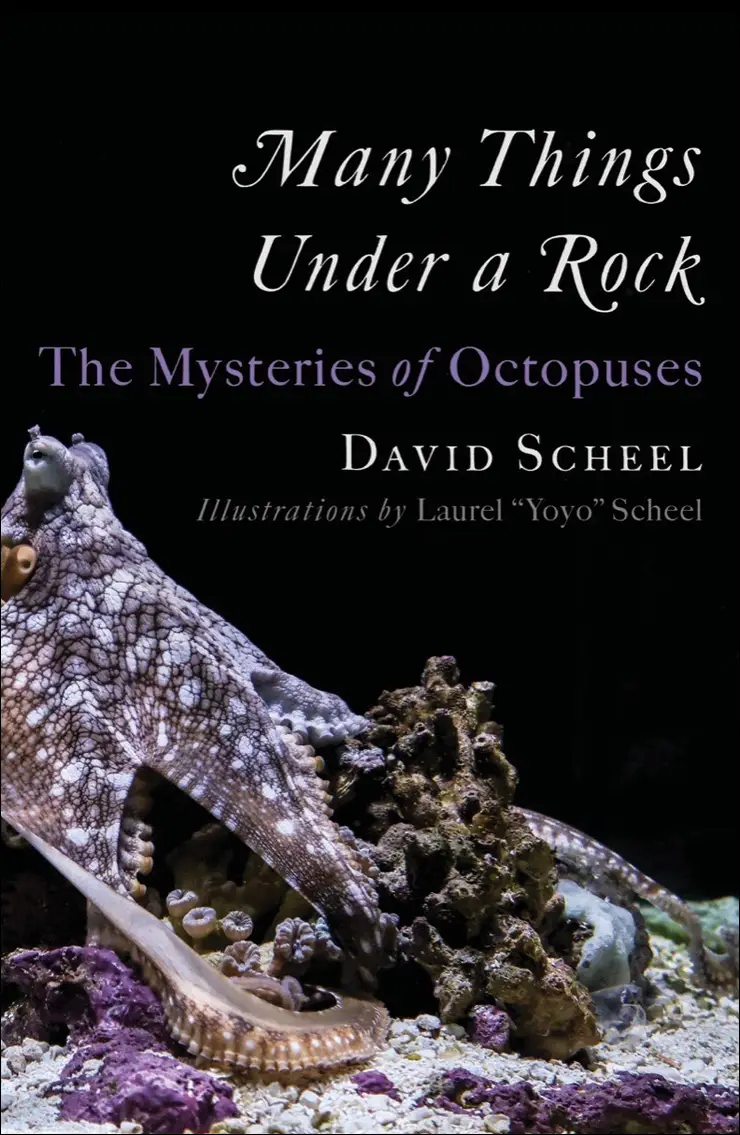
Mountain in the Sea by Ray Naylor is a work of fiction that explores language and communication. Set in a futuristic world, it describes the discovery of an octopus species that appears to have developed its own complex language system. A marine biologist is sent to the island where they live to study and learn from these animals, as these animals could be a key in the development of AI.
The fascinating part of this novel is that current knowledge about language and the development thereof is discussed all throughout the novel, adding a fascinating layer of realism to the imaginary ideas on cephalopod intelligence and potential language systems.
The setting for all this is an island that is ruled by government coverups, knowledge for personal gain and it explores what communication means and how the understanding of language can help us, or potentially destroy us.
It is a very fascinating read: a mixture of science, psychology, philosophy and elements of thriller. Despite it being a fictional novel, I now look at our octopus in the aquarium through a different lens!
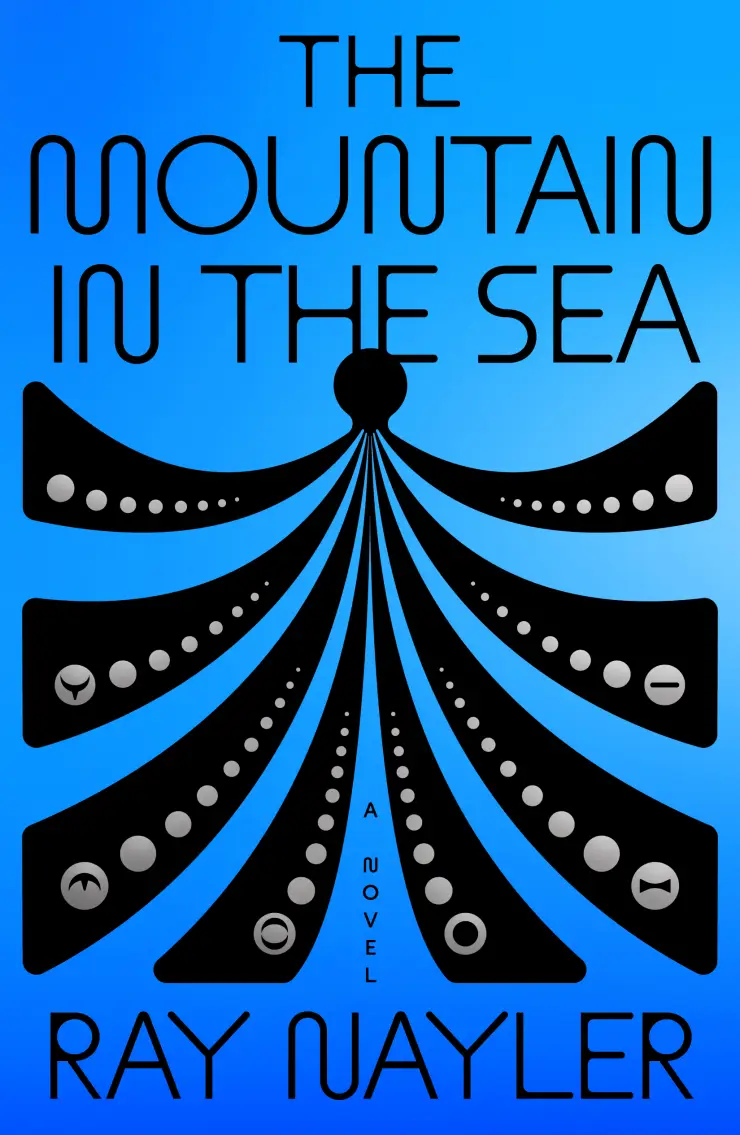
Remarkably Bright Creatures by Shelby van Pelt is a feel-good fiction novel that explores themes of loneliness, grief and family. The Remarkably Bright Creatures of the title refers to octopuses, and specifically Marcellus, one of the main characters in this novel. Being such a bright creature, he has an insightful look at the world around him, and notices things that the people around him don’t.
If I have to criticise this book, I feel that Marcellus has been given too many human characteristics. In this book, he almost seems to function as an omniscient narrator: a storyteller that knows everything that is happening. It is difficult for us to understand how octopuses might experience the world, but I had hoped for a slightly more scientific approach to this exploration.
However, for anyone looking for a lighthearted book with an unusual main character, this is the perfect book.
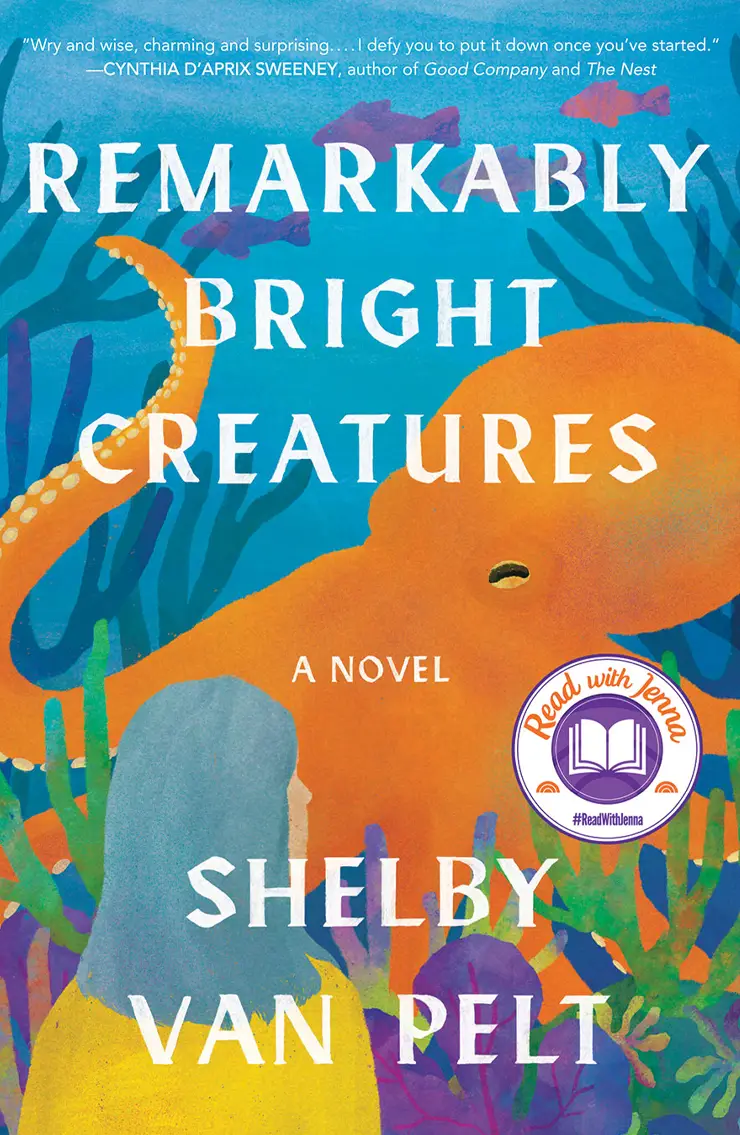
Squid Empire by Danna Staaf is an essential read for anyone intrigued by cephalopods and their evolution. As someone deeply fascinated by evolution, I was very excited to read this book to learn more about their history and development. I was not disappointed!
Staaf describes the unique characteristics that distinguish cephalopods from other animals. She traces their origins discussing their place in the food chain, their habitats, and the adaptations that enable their continued success.
What makes this book truly amazing is Staaf’s ability to present a scientific and very vast topic in an accessible way, making it interesting and easy to understand for both people who are unknown with these animals and those with knowledge of cephalopods. I learned so many interesting and surprising facts, which only made me appreciate these amazing animals more!
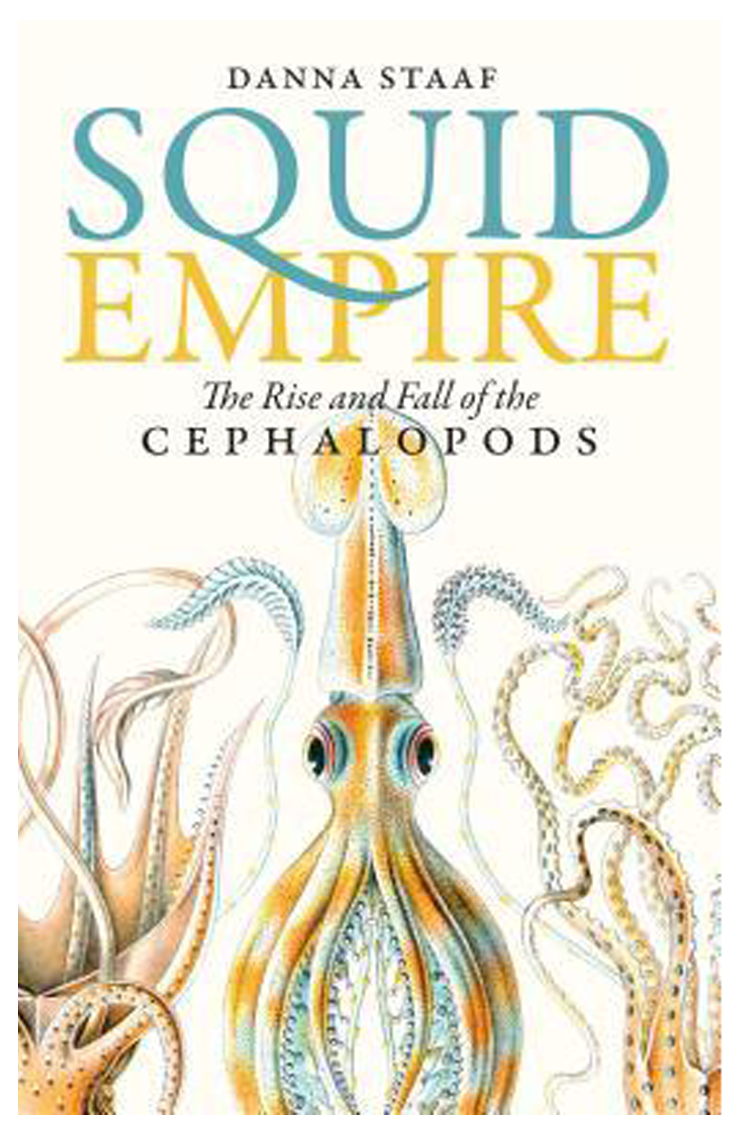
Next month we are going deep into the ocean and we will look at what life is like on the ocean bed. Read along to learn more!
The Deep by Alex Rogers
The Bathysphere Book by Brad Fox
The Deepest Map by Laura Trethewey
Into the Drowning Deep by Mira Grant
.
